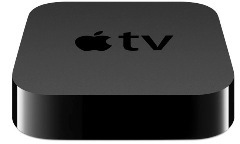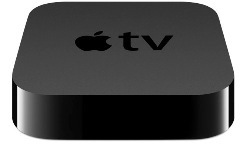Google is working on technology to deliver data transfer speeds over the Internet at 10 gigabits per second, 10 times faster than the connections offered by Google Fiber in Kansas City, a Google executive revealed Wednesday, according to a USA Today report. That’s roughly 1,000 times faster than the average US connection speed of 7.2 megabits per second.
Japan successfully launched a new rocket
Japan successfully launched a new rocket Saturday that it hopes will be a cheaper and more efficient way of sending satellites into space.
The three-stage Epsilon lifted off from a space center on Japan’s southern main island of Kyushu, following a two-week postponement. An earlier launch last month was aborted 19 seconds before a planned liftoff due to a computer glitch.

About an hour after the liftoff, its payload – the SPRINT-A, the first space telescope designed to observe other planets – was successfully put into orbit, said Mari Harada, a spokeswoman at the Japan Aerospace Exploration Agency, or JAXA.
The liftoff was broadcast live on television networks, with footage showing a white, pencil-shaped rocket shot into the sky from the launch pad after spurting gray smoke and orange flash.
The agency declared it was a success.
“It was so thrilled that I was almost speechless,” JAXA President Naoki Okumura told a televised news conference. “The challenge we had to face makes the excitement even greater.”
The Epsilon is the first new rocket design for Japan since the H2A was introduced in 2001. The H2A remains Japan’s primary rocket but officials hope the Epsilon will lead to improvements in the more costly H2A program. Japan hopes to be more competitive in the international rocket-launching business.
Prime Minister Shinzo Abe said the success of a genuinely homemade rocket was a fruit of Japan’s expertise and technology in space development.
“It demonstrates Japanese space technology is highly reliable,” he said in a statement. He added that the success would lead to a self-sustainable space transportation system, further space utilization and to help Japan’s economic growth.
JAXA said the Epsilon costs about 3.8 billion yen ($40 million), one-third the cost of the H2A. The rocket is about 24 meters (80 feet) tall, half the size of the H2A, and can be assembled and readied for launch in just one week, one-sixth of the time required for the H2A.
The Epsilon rocket, which uses a solid-fuel propellant, is meant to expand the scope of space missions Japan hopes to perform. It also streamlines the launch process.
JAXA says the rocket’s extensive use of computer technology means monitoring work that once required a full-staff control room can be done essentially on a single laptop.
-AP
Audi Nanuk Quattro Concept
New Apple TV might show up next month
Some rumors suggest that Apple is working on a new version of the Apple TV, and might show up as soon as next month. For long time now there are rumors that apple is working on both a full-fledged TV set and a revamped set-top-box that is similar in form-factor to the current model .
While the motion technologies seem like features for farther into the future, the new Apple TV hardware design would revolve around improved video quality output . Later this year, Apple will launch a new version of the Mac Pro that could drive 4K displays, so this new Apple TV hardware is might be designed to power the 4K displays already on the market. As demonstrated with the iPhone 5s’s A7 processor, Apple currently has the capabilities of pushing desktop-class, high-powered chips into tiny devices.
With little content available for 4K TVs, Apple might use its own hardware to jump on the 4K business before any other media hardware company.






